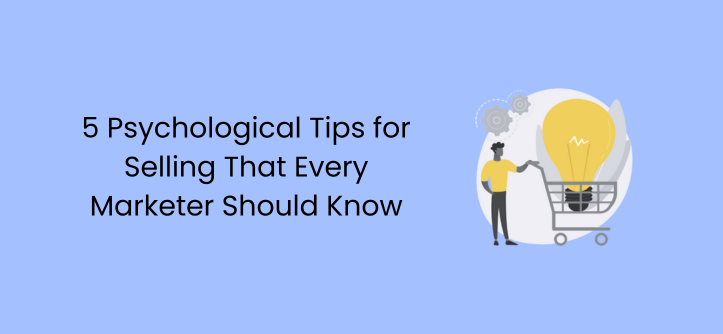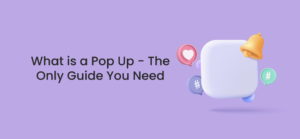Picture this: you walk into a bustling store, and a friendly salesperson approaches you with a warm smile. They engage you in a conversation, asking about your needs and preferences. Before you know it, you find yourself convinced to purchase a product you didn’t even plan on buying. How did that happen?
Welcome to the world of selling, where psychology plays a significant role in influencing our buying decisions. Selling is not just about showcasing a product’s features; it’s about understanding what drives us as human beings and tapping into our desires, emotions, and motivations.
Think about the last time you made a purchase. What made you say “yes” to that particular item? Was it because it fulfilled a need? Or did it evoke certain emotions within you? Perhaps it was the compelling story behind the product or the reassurance of other satisfied customers.
The truth is, we are not always rational decision-makers. Our choices are often influenced by psychological factors that we may not even be consciously aware of. And that’s where applying psychology to marketing becomes incredibly valuable.
When marketers understand the psychology behind consumer behaviour, they can create marketing campaigns that truly resonate with their target audience. By employing specific techniques and principles, they can tap into our subconscious minds and drive us to take action.
For example, have you ever noticed how certain advertisements use emotional stories to capture your attention? They aim to evoke feelings of happiness, nostalgia, or even fear. By appealing to our emotions, they forge a deeper connection and make their products more memorable.
Another effective strategy is social proof. Have you ever been persuaded to try a restaurant because you saw glowing reviews from satisfied customers? That’s social proof in action. When we see others endorsing a product or service, it increases our trust and confidence in it.
Creating a sense of urgency is yet another psychological tactic. Limited-time offers flash sales, and countdown timers trigger our fear of missing out. We suddenly feel compelled to act quickly before the opportunity slips away.
Understanding psychology in marketing is not about manipulation or trickery. It’s about creating meaningful connections, building trust, and delivering value to customers. It’s about crafting marketing messages that resonate with our deepest desires and motivations.
In this article, we will explore five psychological tips that every marketer should know in order to enhance their selling techniques and drive better results.

Image source: Freepik.com
Understanding the Psychology of Selling
Before diving into the tips, it’s important to grasp the fundamentals of selling from a psychological standpoint.
The Power of Listening
Imagine you walk into a store looking for a new phone. The salesperson immediately bombards you with features, specifications, and all the technical jargon. Frustrating, right? That’s because they skipped a fundamental step: listening.
Listening is the secret weapon of successful salespeople. By genuinely listening to your customers, you gain valuable insights into their desires, concerns, and preferences. You can then tailor your pitch to address their specific needs, making them feel understood and valued.
Building Trust and Credibility
Have you ever hesitated to buy something because you didn’t trust the person selling it? Trust and credibility are essential in selling. Customers need to believe that you genuinely care about their satisfaction and that your product or service delivers on its promises.
One way to build trust is through testimonials and reviews. When potential customers see positive feedback from others who have had a great experience with your product or service, they feel more confident in their decision to buy.
Another powerful way to establish credibility is by demonstrating your expertise. Share stories, or examples that showcase your knowledge and experience. This helps customers see you as a reliable source of information and increases their confidence in your offering.
Making it Personal
Think about the last time you received a personalized recommendation from a salesperson. Maybe they remembered your name, your preferences, or even a previous conversation you had. How did that make you feel? Chances are, you felt valued and more likely to trust their advice.
Personalization is a game-changer in selling. By taking the time to understand your customers on an individual level, you can tailor your approach to resonate with their unique needs and preferences. This personal touch creates a connection and sets you apart from the generic sales pitches they may encounter elsewhere.
Telling Stories that Stick
Facts and figures are essential, but they alone won’t captivate your audience. Stories, on the other hand, have a magical ability to engage and inspire. Think about the last time you heard a compelling story. It likely grabbed your attention, evoked emotions, and left a lasting impression.
In selling, storytelling is a powerful tool. By weaving narratives that highlight how your product or service has positively impacted others, you create a compelling and relatable experience for your potential customers. Stories bring your offering to life, making it easier for people to envision themselves benefiting from it.
5 Psychological Tips for Selling That Every Marketer Should Know
Appeal to emotions
Emotions have a profound impact on decision-making. To effectively sell your product or service, you must tap into the emotional triggers of your target audience. Understand what motivates them, what their fears and desires are, and craft your marketing message accordingly.
Storytelling is a powerful technique that can help evoke emotions in your audience. By sharing relatable stories and experiences, you can create a deeper connection and make your product or service more memorable.
Utilize social proof
Social proof is a psychological phenomenon that influences people to conform to the actions of others. Incorporating social proof in your marketing strategy can significantly boost your credibility and encourage potential customers to trust your brand.
Testimonials and reviews from satisfied customers are excellent forms of social proof. Displaying positive customer feedback and real-life success stories can instil confidence in your target audience. Additionally, leveraging influencer marketing can further enhance your brand’s reputation and reach.
Create a sense of urgency
Human beings have a natural inclination to avoid missing out on opportunities. By creating a sense of urgency, you can prompt potential customers to take immediate action. Limited-time offers, flash sales and countdown timer popups can all contribute to this sense of urgency.
Scarcity tactics, such as highlighting limited stock availability or exclusive deals for a select few, can also drive sales. By making your product or service appear scarce, you create a perception of high value and desirability.
Use the principle of reciprocity
Reciprocity is a powerful psychological principle that states when someone receives a favor or gift, they feel obligated to reciprocate. As a marketer, you can leverage this principle to your advantage by offering value upfront.
Providing free resources, samples, or trials allows potential customers to experience the value of your product or service. This not only builds trust but also creates a sense of indebtedness, increasing the likelihood of them making a purchase.
Personalized experiences are another effective way to utilize reciprocity. Tailoring your marketing messages and offers to individual preferences and needs demonstrates that you genuinely care about your customers, fostering a stronger connection and driving sales.

Understand decision-making biases
Human beings are subject to various cognitive biases that affect their decision-making processes. By understanding and incorporating these biases into your selling strategies, you can influence customer behaviour and increase sales.
Anchoring and framing is a bias that occurs when people rely heavily on the first piece of information they receive. As a marketer, you can strategically position your product or service by presenting a higher-priced option first, making the alternatives appear more affordable and enticing.
Loss aversion is another bias that states people are more motivated to avoid losses than to acquire gains. By highlighting the potential losses or missed opportunities associated with not purchasing your product or service, you can create a sense of urgency and drive conversions.
Conclusion
Incorporating psychological tips into your selling techniques can significantly impact your marketing success. By appealing to emotions, utilizing social proof, creating a sense of urgency, leveraging reciprocity, and understanding decision-making biases, you can create compelling campaigns that resonate with your audience and drive sales.
Remember, selling is not just about the features and benefits of your product or service; it’s about connecting with your audience on a deeper level. It is an ongoing journey. It’s about understanding your customers, building trust, personalizing your approach, and leveraging the power of storytelling. With these fundamental skills in your toolkit, you’ll be well on your way to becoming a persuasive salesperson.




